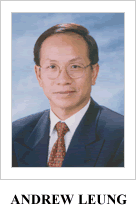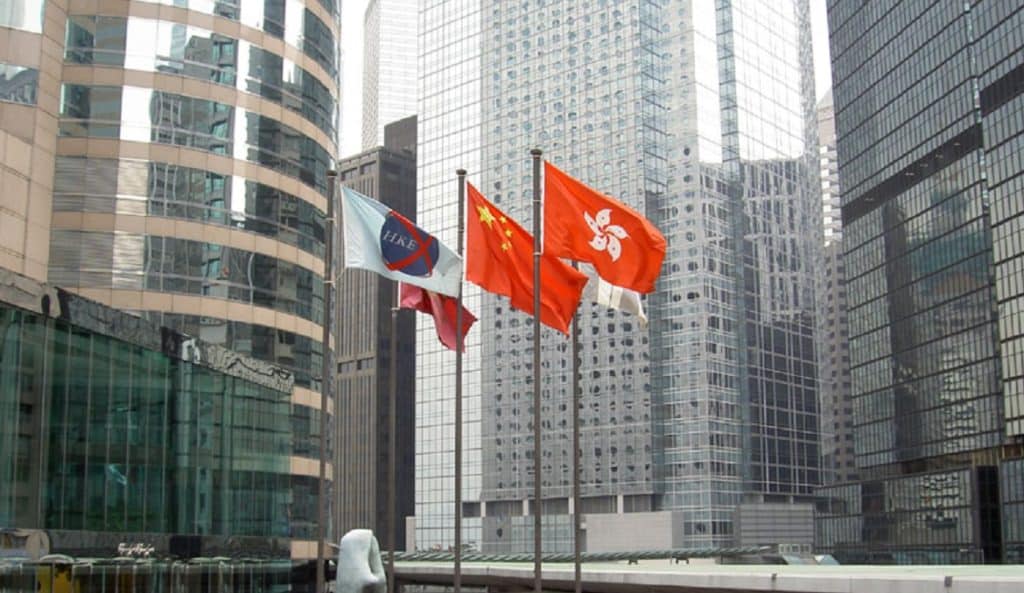By Andrew K.P. Leung (International and Independent China Strategist)
 Following Beijing’s decision to introduce a Hong Kong national security law bypassing Hong Kong’s legislature, the United States has declared Hong Kong no longer autonomous.
Following Beijing’s decision to introduce a Hong Kong national security law bypassing Hong Kong’s legislature, the United States has declared Hong Kong no longer autonomous.
Looming sanctions and withdrawal of privileged access to America’s economy, finance, and visitor treatment cast a long shadow over Hong Kong’s status as an international financial center. (1)
When Beijing’s image has already hit a nadir thanks to the coronavirus crisis, speculations are rife that Hong Kong’s One Country Two Systems is certified dead.
To understand what is at stake, it is important to recall what has happened to Hong Kong as highlighted by the recent protests. Police premises are fire-bombed. Officers’ children are harassed at school. Opposing ordinary citizens are lynched. Mainland-related businesses are ransacked. Wanton acts against Beijing’s representative offices challenge China’s sovereignty. Ideas and slogans advocating “self-determination” and “independence” are a common sight.
Anti-Beijing legislators refuse to sever moral support for covert “separatist” sentiments. There is an unspoken symbiotic relationship with the radical camp, drawing strength from each other. This has created a gridlocked legislature blocking government’s efforts to address “deep-seated contradictions”, such as long-term housing, that keep Hong Kong gravely divided.
All the while, without condoning the associated violence, hostile foreign powers have been expressing support for this reactionary movement, including meeting by high-level officials (such as Vice President Mike Pence and Secretary of State Pompeo) with prominent activists, all in the name of democracy. Irony springs to mind if in the name of democracy and human rights, China were to support the current George Floyd protests raging in the United States!
In the eyes of Beijing, One Country Two Systems as originally conceived has now been gravely distorted and hijacked. Not only have many “HongKongers” lost their sense of One Country, violent protests, some bothering on terrorism, have morphed into fiery breakdown of law and order, open challenge to Beijing’s sovereignty and political barriers blocking Hong Kong’s development.
Beijing’s misgivings are captured in a two-part CCTV documentary “Another Hong Kong”, released only weeks before. (2)
To Beijing, Hong Kong has now become a base for covert subversion, part and parcel of a geopolitical strategy to thwart China’s ascendance. The enactment of Hong Kong’s Basic Law Article 23, a key safeguard for national security, remains foiled after nearly 23 years by unabated fierce opposition. The One Country of the Two Systems is in critical jeopardy. Regardless the pain, urgent surgery is needed, before it’s too late.
Come what may, Beijing will never back down on such critical matters as national security and critical restoration of One Country Two Systems to health. The dice is cast. Matters have finally been brought to a head. Is Hong Kong now doomed?
Beijing has voiced assurances that Hong Kong’s freedoms will continue to be protected by Hong Kong’s laws, including freedom of speech, assembly and protests.
When it’s time for the final countdown, direct enforcement of the new national security law may well be left to Hong Kong’s own law enforcement agencies, subject to checks and balance of Hong Kong’s independent judiciary. A national security agency could be set up, similar to the Special Branch of the former Royal Hong Kong Police Force in the colonial era.
If the firewall guarding Hong Kong’s legitimate freedoms is sufficiently robust, the vast majority of the people of Hong Kong, including foreigners, should have nothing to fear, as Beijing has claimed. But that’s a big “if”, depending on how Beijing defines “national security”.
Shortly after the handover, Beijing bent backwards to avoid any impression of interference. Official contacts at all levels were tightly controlled. However, as cross-border economies became closely intertwined, a clash of identities inevitably followed from the free flow of peoples, businesses and way of life.
Nevertheless, Hong Kong’s freedoms have so far largely held fast. Hong Kong remains a city of protests and home to a vibrant anti-Beijing and anti-government press. Despite the anti-extradition-bill protests, Hong Kong still ranks number two in the 2020 Index of Economic Freedom, published by the Heritage Foundation on 17 March, 2020. Scores relating to the rule of law – ‘Property Rights’, ‘Judicial Effectiveness‘ and ‘Government Integrity‘ – have all increased (3).
Behind the fire and fury of violent protests, there is a drumbeat of “fighting to the death” to realize “genuine” universal suffrage. The latter aim is a clarion call winning support across the world. Unfortunately, this is being used to justify, or at least whitewash, any radical means, however violent, to achieve the aim.
Is Beijing using the national security law to silence demands for “genuine” universal suffrage?
All the world’s democracies are relative. The kind of democracy for the Hong Kong Special Administrative Region cannot blindly follow national models. The principle of “gradual and orderly progress” to universal suffrage is prescribed under Basic Law Article 45. The method of selecting the Chief Executive must work through an Election Committee as prescribed in Annex I.
What seems easily forgotten is that Hong Kong’s leader must be accountable to, be trusted by, and work with Beijing. He or she must not turn out to be a front for soft-paddling “self-determination”, “separation”, let alone “independence”. Absent mutual trust, pre-screening of candidates is unavoidable. However, the last package for universal suffrage to select Hong Kong’s leader subject to pre-screening was widely rejected in 2015 by Hong Kong’s pro-democracy activists as “undemocratic”.
Under One Country Two Systems, the One Country is not there in name only. A high degree of autonomy cannot equate to complete autonomy, including connivance at erosion of nationhood and “self-determination”, let alone “separatism” or “independence”. To Beijing, these alarm bells have been deafening.
One Country and Two Systems are interactive. The more Beijing feels threatened, the more will the sovereign exert itself to restore balance. The converse is also true. If national security is adequately protected, and if the democratic camp succeeds in building sufficient mutual trust, Beijing is likely to allow more latitude on universal suffrage. For example, the range of acceptable candidates may be widened, pre-screening notwithstanding.
One Country Two Systems remains vital to Beijing’s long-term national interest. Hong Kong is China’s largest offshore center for the internationalization of the RMB, the Chinese currency. Hong Kong is poised to play a bigger role in the Greater Bay Area and in a reformed Belt and Road Initiative. These are strategic components for attaining the China Dream. Turning Hong Kong into a smaller Shanghai doesn’t make sense.
What if Uncle Sam goes for the jugular to strangle Hong Kong?
First, Hong Kong’s status as a separate customs territory derives from approval of the World Trade Organization (WHO), not US diktats. Hong Kong’s currency link to the US Dollar is supported by Hong Kong’s massive foreign currency reserves (some $441 billion), boosted by Beijing’s unqualified support.
Hong Kong’s external trade with the U.S. only represents some 2% of Hong Kong’s GDP. So any imposition of US trade tariffs is unlikely to hurt much.
Even in extremis, denial of access to the greenback may be convulsive, but not necessarily lethal, as there are other reputable global currencies including the Euro and the British Pound.
All in all, as Beijing stands at full throttle behind Hong Kong, America’s frontal assault is likely to harm Hong Kong, but not sufficient to kill it.
On the other hand, the United States has its largest trade surplus with Hong Kong – some $30 billion annually. Hong Kong hosts 290 U.S. company regional headquarters and 434 US regional offices. American businesses back home benefit hugely by leveraging Hong Kong’s special status.
What is more, geo-strategically, it makes far greater sense for the United States to support Hong Kong’s special status as an important card to play at a time of intensifying US-China great-power rivalry.
On Hong Kong’s future status, therefore, sanity is likely to prevail on both sides eventually. Beijing would ensure that national security doesn’t destroy Hong Kong’s autonomy. Washington is likely to recoil from killing the goose that lays various golden eggs. If so, with the national security law in place, Hong Kong may well become a safer, and calmer place for everyone to live, to invest and to prosper, without losing its luster as an exciting Pearl of the Orient where East meets West.
A stable and prosperous Hong Kong is in everybody’s interest, to the people of Hong Kong, to China, to the United States and indeed, to the rest of the world.
For now, as Mark Twain would have said, the report of Hong Kong’s death is somewhat exaggerated!
******************************************************************
– US says Hong Kong is no longer autonomous from China, Financial Times, 28 May, 2020 https://www.ft.com/content/3ae02552-6948-47ae-8e53-233bcded6bf5
– Another Hong Kong: Exploring the Truth Behind the Controversy Over the Extradition Bill, CCTV documentary Part I – https://www.youtube.com/watch?v=VGCO-M0VTPA Part II – https://www.youtube.com/watch?v=FyZelfAMjb8 (accessed on 23 May, 2020)
– Hong Kong rated as world’s second freest economy,Hong Kong Government Press Release, 17 March, 2020 https://www.info.gov.hk/gia/general/202003/17/P2020031700546.htm (accessed on 24 May, 2020)
Author: Andrew K.P. Leung (International and Independent China Strategist. Chairman and CEO, Andrew Leung International Consultants and Investments Limited)
Article in PDF:
Geo-strategically the report on the death of Hong Kong’s autonomy is somewhat exaggerated







